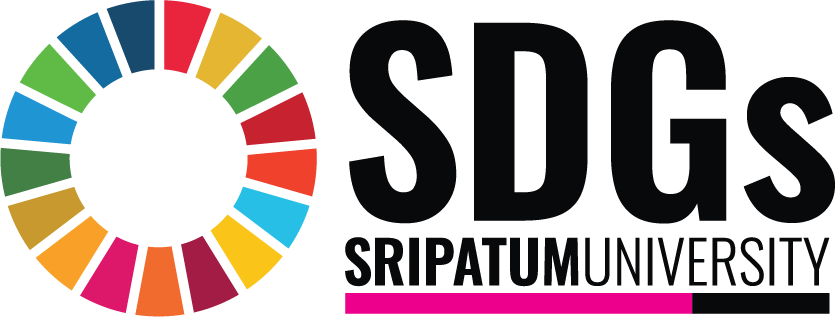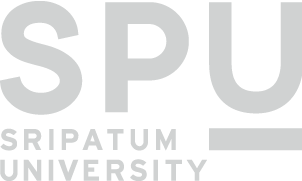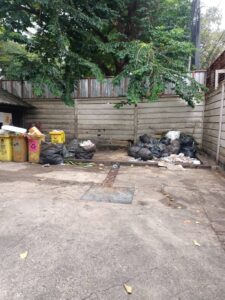
Sripatum University (SPU) has taken a bold and necessary step towards sustainable food consumption and waste reduction, firmly aligning itself with the Sustainable Development Goals (SDGs). With two major canteens serving thousands daily, SPU recognized the critical issue of food waste—recording approximately 800 liters of daily waste—and responded with a comprehensive strategy rooted in awareness, technology, and community engagement.
The initiative centers on SDG 12.2.1, showcasing SPU’s campus-wide food waste tracking system and its active measures to reduce waste from source to disposal. Educational campaigns aim to empower students and staff to make mindful food choices, a move that supports SDG 4.3.2 and 4.3.4 by integrating sustainability learning into community engagement. Meanwhile, technology like composting machines (12.2.3, 12.2.4) and food digester systems contribute to on-site waste transformation, advancing circular economy principles.
SPU also promotes partnerships across campus cafeterias to cut supply-side food loss (SDG 17.2.1), and explores food donation or animal feed use (SDG 2.3.2), effectively linking to community-based support systems. These actions resonate with SDG 13.2.1 and 13.3.2 as they reduce methane emissions and raise awareness about climate risks. Environmental impact is also tackled through awareness campaigns and green landscaping supported by compost reuse (SDG 11.4.6, 11.4.8), demonstrating a commitment to sustainable urban practices.
This program illustrates SPU’s leadership across multiple fronts—from climate action and responsible production to inclusive, practical education. It touches on goals such as SDG 3 (public health via reduced pollution), SDG 6 (reducing wastewater), SDG 9 (innovation in waste management), and SDG 15 (land conservation through reduced landfill). By embedding SDG principles into daily operations, SPU is not just teaching sustainability—it’s living it.
Sripatum’s strategic implementation of SDG 12.2.1 stands as a model for universities nationwide and globally. As food waste remains a pressing issue across educational institutions, SPU’s tangible progress proves that campuses can lead the change—smartly, systemically, and sustainably.
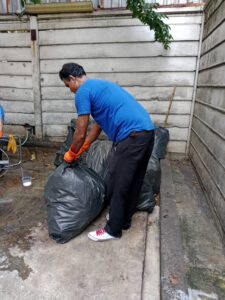
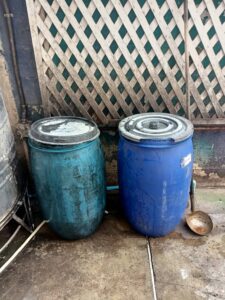

SPU เดินหน้านำร่องการจัดการขยะอาหารอย่างยั่งยืนในมหาวิทยาลัยไทย
มหาวิทยาลัยศรีปทุม (SPU) ก้าวสู่บทบาทผู้นำด้านความยั่งยืนด้วยการขับเคลื่อนแนวทางจัดการขยะอาหารอย่างเป็นระบบ สอดคล้องกับเป้าหมายการพัฒนาที่ยั่งยืน (SDGs) ท่ามกลางปริมาณขยะอาหารเฉลี่ย 800 ลิตรต่อวันจากโรงอาหารหลัก 2 แห่ง SPU เล็งเห็นถึงความจำเป็นเร่งด่วนในการจัดการปัญหานี้อย่างยั่งยืน
โครงการนี้สอดคล้องกับเป้าหมาย SDG 12.2.1 โดยมหาวิทยาลัยได้จัดตั้งระบบตรวจวัดปริมาณขยะอาหารทั่วทั้งมหาวิทยาลัย พร้อมทั้งดำเนินกิจกรรมส่งเสริมความรู้ให้แก่นักศึกษาและบุคลากรในการบริโภคอย่างมีสติ (4.3.2, 4.3.4) รวมถึงนำเทคโนโลยี เช่น เครื่องผลิตปุ๋ยหมักจากเศษอาหารมาใช้เพื่อลดปริมาณขยะ (12.2.3, 12.2.4) ส่งเสริมแนวคิดเศรษฐกิจหมุนเวียน
นอกจากนี้ SPU ยังร่วมมือกับผู้ประกอบการโรงอาหารเพื่อลดการสูญเสียอาหารจากกระบวนการจัดหา (17.2.1) และผลักดันการใช้ขยะอาหารอย่างมีประโยชน์ เช่น การบริจาคหรือให้อาหารสัตว์ (2.3.2) ซึ่งเป็นการเชื่อมโยงความร่วมมือกับชุมชน พร้อมทั้งลดการปล่อยก๊าซมีเทนที่ส่งผลต่อการเปลี่ยนแปลงสภาพภูมิอากาศ (13.2.1, 13.3.2) รวมถึงนำปุ๋ยหมักที่ได้มาใช้กับภูมิทัศน์ในมหาวิทยาลัย ส่งเสริมพื้นที่สีเขียว (11.4.6, 11.4.8)
ความมุ่งมั่นครั้งนี้ยังขยายไปสู่เป้าหมายอื่น ๆ ได้แก่ การส่งเสริมสุขภาพ (SDG 3), การลดภาระน้ำเสีย (SDG 6), นวัตกรรมในการจัดการของเสีย (SDG 9) และการดูแลพื้นที่ดินผ่านการลดการฝังกลบ (SDG 15) SPU แสดงให้เห็นว่าการขับเคลื่อนมหาวิทยาลัยด้วยแนวทาง SDGs ไม่ใช่เพียงแค่การเรียนรู้ในห้องเรียน แต่คือการปฏิบัติจริงในทุกมิติของชีวิตประจำวัน
การดำเนินงานด้าน SDG 12.2.1 ของ SPU จึงถือเป็นต้นแบบที่มหาวิทยาลัยไทยและทั่วโลกสามารถเรียนรู้และนำไปปรับใช้ในการพัฒนาสังคมที่ยั่งยืนและมีประสิทธิภาพ

